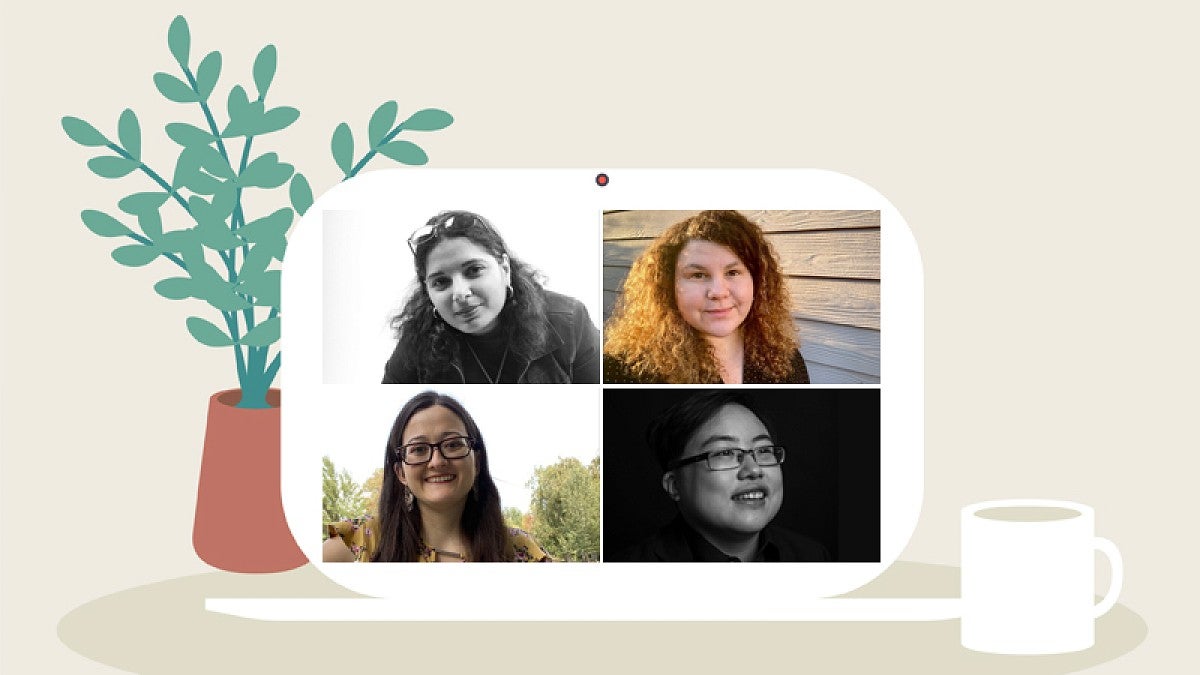The University of Oregon’s disability studies minor will present a virtual discussion featuring a multiracial panel of professionals with disabilities at its first public forum Wednesday, May 5.
The event, co-sponsored by the UO Department of English and the Division of Equity and Inclusion along with the Disability Studies Program, will start at 2 p.m. via Zoom. Two panel members are UO graduates.
Attendees can expect to hear first-hand experiences from panelists who have created success on their own terms. Topics include advancing equality in the work place, transitioning from school to career, and navigating the work force with a disability.
Panelist Day Al-Mohamed, an author, filmmaker and disability policy executive, said disabled professionals still face hurdles and often lack visibility.
“It’d be nice to actually have disability be something useful and meaningful in media, and I’m not just talking fiction and documentary but representation behind the camera,” Al-Mohamed said. “You don’t see disabled directors or producers or editors, and they exist.”
That led her to co-found FWD-DOC: Documentary Filmmakers With Disabilities, a group of filmmakers with disabilities on a mission to increase visibility, support and opportunities for disabled filmmakers.
Also changing the field of media for people with disabilities is UO alumna Sofia Webster. While she has faced inaccessibility and ableism, she turned that into her driving force for making improvements on campus and within future endeavors.
“All of those ableist experiences that I had was also a kindling for what became my passion and my calling, which is disability inclusion and trying to convince people and entities that disability needs a spot at the table,” Webster said.
Webster is currently working as an impact officer at LaVant Consulting Inc., a communications firm dedicated to helping companies and brands “speak disability with confidence.” Specializing in social media management, Webster makes social media accessible for people with disabilities and consults with companies on how to best discuss disabilities on their platforms.
Her most recent work took her to this year’s Academy Awards ceremony with the film “Crip Camp: A Disability Revolution,” which was nominated in the documentary feature category. Webster ran the Twitter account for “Crip Camp,” which led to her first two viral tweets.
“All of these accomplishments that I’m seeing in my career, it all comes from the University of Oregon,” Webster said. “I wouldn’t have been here if it weren’t for the UO.”
Fellow UO alumna Anais Keenon also became a fierce disability equity advocate after spending her early years “resisting being disabled” and fighting the connotation of “lower expectations for success.” The words hung on her throughout her childhood and school years.
“It took me several more years, until I was at university, for me to realize my objections to ‘disability’ had a lot less to do with the actual meaning of the word and much more about society’s reaction to and treatment of people with disabilities,” she said.
That made her determined to do what she could to support her community.
Keenon began working for the city of Portland in 2018 after applying and expecting that getting hired was “a long shot.” As the training and disability employment supervisor, her responsibilities include implementing programs, policies and protocols to encourage the employment and retention of those with disabilities.
Lydia X. Z. Brown, a self-described “multiply-marginalized” advocate, educator and attorney, did not expect to fall into activism work either. As a freshman, Brown realized becoming an advocate was not a choice, but mandatory.
“It wasn’t something that I could refuse to take part in,” Brown said.
Brown’s work — including working as policy counsel for privacy and data at the Center for Democracy and Technology; founding the Fund for Community Reparations for Autistic People of Color’s Interdependence, Survival, and Empowerment; and teaching as an adjunct lecturer in Georgetown University’s Disability Studies Program — has led to awards and acclaim, as well as rejection letters and hate mail.
All students, staff and community members are invited to join the event. American Sign Language interpretation will be provided by the Accessible Education Center.
—By Kaitlyn Jimenez, University Communications


